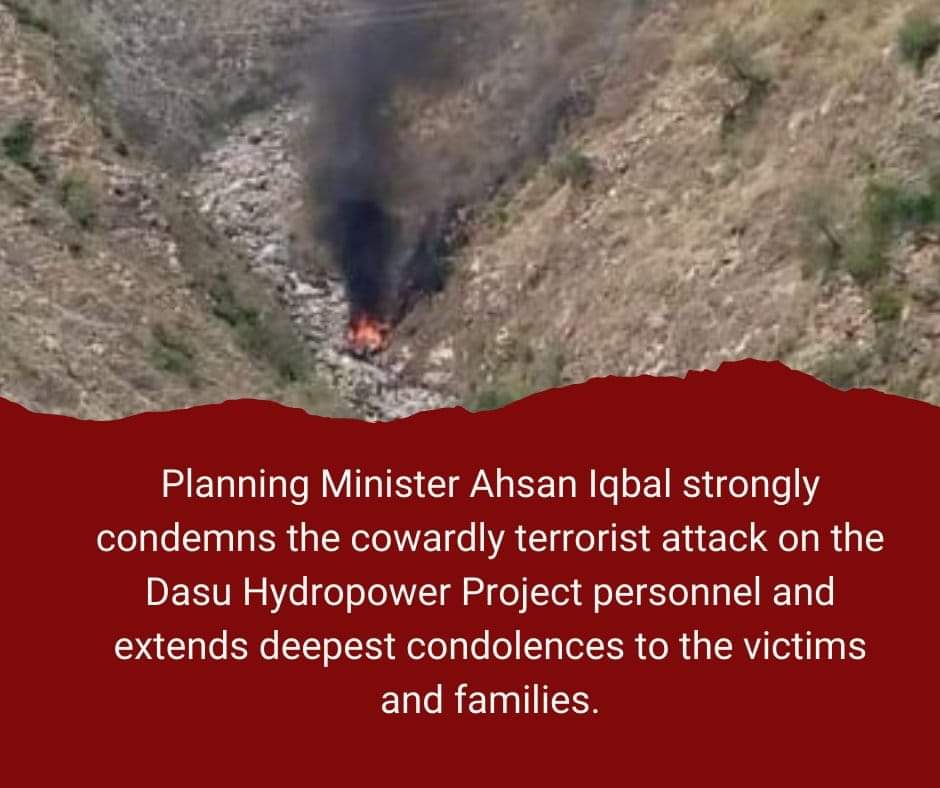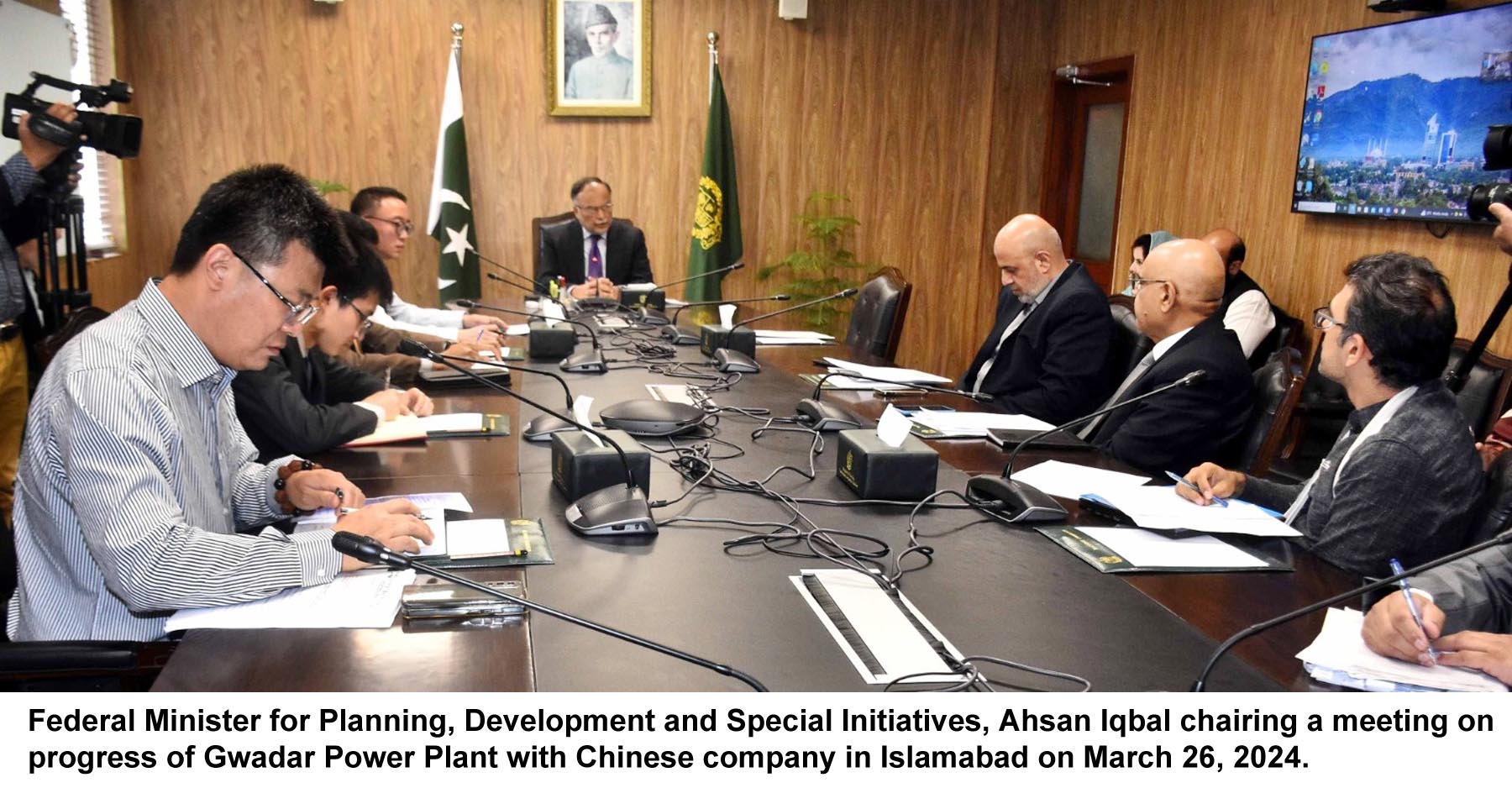The 32nd AGM and Conference of the PSDE, organized by PIDE, concluded today with the prestigious Quaid-i-Azam Lecture, delivered by Professor Athar Hussain, Director Asia Research Center, London School of Economics, UK. The theme of his lecture was “Regional and Domestic Political Economy”. The session was chaired by Professor Ahsan Iqbal, Minister for Planning, Development, and Reforms. Professor Hussain’s paper was discussed by Mr. Haroon Sharif, Advisor, Regional Economic Cooperation, South Asia, Professor Tariq Amin Khan, Ryerson University, Toronto, Canada, and Dr. Ashfaque Hasan Khan, Dean, NUST, Islamabad.
Professor Ahsan Iqbal, in his concluding remarks, said that he was delighted and honored to be the chief guest at the concluding session of the PSDE/PIDE Conference. On the occasion, he said that the policies should be research-based and should not be formed on the basis of gut feelings. He said that the solutions to the problems should be based on empirical evidence and not on mere judgments. For this to happen, however, the ideas must be discussed in an open environment and the discourse must be free and frank, he added. Highlighting the importance of CPEC for Pakistan, the Minister said that the project is not only a game-changer but it could also be a fate-changer if implemented correctly. Furthermore, he highlighted the importance of the PSDE/PIDE Conferences and said that key messages from the last year’s Conference were discussed and benefited in the Planning Commission.
Professor Iqbal said that 10 years ago, the world was looking at us because of the security situation but now every government and think-tanks are looking for opportunities they can have through CPEC with everyone expressing the desire to join CPEC. Giving the examples of giants like Blackberry and Nokia who lost their places as global leaders, he said that we must adapt to the changing conditions around the world or else we would be left behind. Prof Iqbal said that CPEC is not just about transportation infrastructure and energy projects. It is a framework that is much broader, holistic, and looks at all the socioeconomic factors of development. Infrastructure and energy are important as they are the current bottlenecks for development. In the last sixty-six years, 16 to 17 thousand megawatts of energy was added to the system but the coming 3 years would see a record addition of 11,000 megawatt increase in power production. It is the biggest ever investment in the energy sector in Pakistan. He added that it was the SME sector that paid the price of energy shortages as the large sector had alternatives. Through CPEC we are also removing transport and infrastructural bottlenecks.
The Minister added that under CPEC, China does not look at Pakistan as a market but a country with shared destiny. By sharing their development experience, the Chinese are helping Pakistan to expedite its development process. Commenting on the development of the Chabahar by Iran and India, the Minister said that Pakistan is not looking at it as a competition but a development that complements CPEC. We are the poorest integrated region in the world, he added. He said that CPEC is not just a project of Pakistan but something linking the whole region.
The first panel discussion of the day was on “Socio-Economic Impact of CPEC”, which was chaired by Dr. Arshad Zaman, former Chief Economist.Dr. Nadeem Javed, Chief Economist, Governmentof Pakistan, said that CPEC is primarily an energy-driven connectivity project the aim of which is to reduce energy constraints and improve fuel mix. Post-July 2017 the gap between demand and supply of energy will end and by July 2018 generation of power is expected to be in surplus due to CPEC. The Chief Economist said that according to projections, CPEC would reduce the number of unemployed labor force by 2.32 million in 2017-18. Expressing his views on the topic, Professor Tariq Amin Khan, Ryerson University, Canada, said that problems in existing social relations require alteration in structure of rural society. If the goal is to create less oppressive social relations then the Government needs to intervene. He said that it took many decades for the situation to change in Central Punjab but we cannot wait that long to bring social change in Southern Punjab. The situation demands land distribution, learning lessons from history, and imposition of agriculture tax and using the revenues for rural development.
The three-day long Conference was attended by a large number of social scientists, researchers, faculty members from universities across Pakistan, students, policymakers and Government functionaries. The Conference was organized by the Pakistan Institute of Development Economics (PIDE), with the support of Ministry of Planning, Development and Reform. Other sponsors of the AGM/Conference include UNDP, FES, the World Bank, PPAF, OXFAM, IGC, ILO, IUCN, AKRSP, IFPRI, ADB, and ECO-SF.





